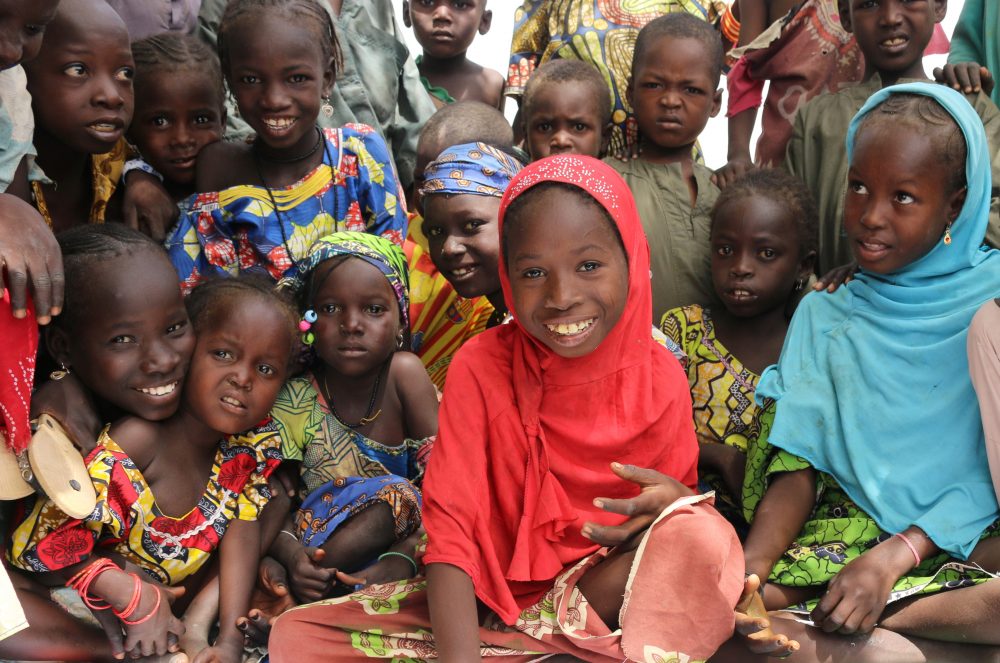
Two million people have been displaced since the terrorist group Boko Haram launched its offensive a decade ago. The Clas Ohlson Foundation supports Plan International’s work with education for girls from refugee families in northern Cameroon. The children’s education is a lifeline and a hope for a better future in an extremely challenging and vulnerable existence.
According to the UN Convention on the Rights of the Child, all children and young people have the right to education and a good start in life. However, especially in crisis situations, many families need to prioritise who should have access to education. Often, it is the daughters in the family who are left behind. At the same time, a large number of studies show that when a girl can go to school, it has long-term positive effects for her, her family and society as a whole.
Support for the most vulnerable
Boko Haram only accepts traditional religious schools, taking an explicit stand against conventional education. In Nigeria, nearly 900 schools with a total of 400,000 students have been closed. In some areas, more than one in three children do not attend school. Many studies and organisations report that girls are particularly vulnerable in conflict situations. Their needs for food and health care are less often met as girls are prioritised last. Violence against girls is increasing, more of them are being married off, their freedom of movement is even more restricted and they are more often forced to drop out of school.
There is now a high risk that refugee girls will be even more vulnerable in the COVID-19 crisis. Experience from working in health disasters, such as the Ebola outbreak in West Africa, shows that the risk of abuse, early pregnancies and interrupted schooling increases during crises. As families struggle economically, more girls are married off, leaving their families with one less mouth to feed. With child marriage
, the number of teenage pregnancies increases. Young mothers are at a much higher risk of dying from complications in childbirth. According to the UNDP, the number of teenage pregnancies in the worst affected areas increased by 65% during the Ebola outbreak.
Education for refugee children
In the Minawao refugee camp in Cameroon, Plan International is working to ensure schooling for children in the camp. Every year, 44,000 children and young people in primary and secondary schools are reached by the programme. The project focuses on creating functional and safe learning environments and classrooms, providing teaching materials, and recruiting and training teachers. Plan International is also developing school hygiene facilities (hand washing facilities, access to drinking water and toilets), as well as outreach activities to motivate more families to send their children, and especially their daughters, to school.
With the support of the Clas Ohlson Foundation, Plan International is now able to provide an additional 3,000 girls in the Minawao refugee camp with an opportunity for schooling, education and hope for a brighter future.